Filter by

Critical perspectives on cultural memory and heritage
Critical Perspectives on Cultural Memory and Heritage focuses on the importance of memory and heritage for individual and group identity, and for their sense of belonging. It aims to expose the motives and discourses related to the destruction of memory and heritage during times of war, terror, sectarian conflict and through capitalist policies. It is within these affected spheres of cultural h…
- Edition
- -
- ISBN/ISSN
- 9781787354845
- Collation
- XVIII, 315 p.
- Series Title
- -
- Call Number
- 949.601 APA c

Cultural expertise, law, and rights:a comprehensive guide
Cultural Expertise, Law and Rights introduces readers to the theory and practice of cultural expertise in the resolution of conflicts and the claim of rights in diverse societies. Combining theory and case-studies of the use of cultural expertise in real situations, and in a great variety of fields, this is the first book to offer a comprehensive examination of the field of cultural expertise: …
- Edition
- -
- ISBN/ISSN
- 9781003167075
- Collation
- xiv, 360 pages; illustration
- Series Title
- -
- Call Number
- 340.115 HOL c
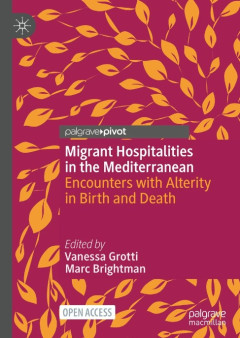
Migrant Hospitalities in the Mediterranean:: Encounters with Alterity in Birt…
This open access book applies insights from the anthropology of hospitality to illuminate ethnographic accounts of migrant reception in various parts of the Mediterranean. The contributors ground the idea and practice of hospitality in concrete ethnographic settings and challenge how the casual usage of Derridean or Kantian notions of hospitality can blur the boundaries between social scales an…
- Edition
- -
- ISBN/ISSN
- 9783030565855
- Collation
- xii, 132 p.
- Series Title
- -
- Call Number
- 304.8 MIG V
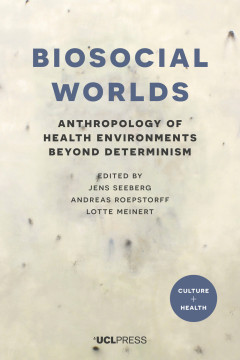
Biosocial worlds :anthropology of health environments beyond determinism
Biosocial Worlds presents state-of-the-art contributions to anthropological reflections on the porous boundaries between human and non-human life – biosocial worlds. Based on changing understandings of biology and the social, it explores what it means to be human in these worlds. Growing separation of scientific disciplines for more than a century has maintained a separation of the ‘natural…
- Edition
- -
- ISBN/ISSN
- 9781787358232
- Collation
- viii, 215 pp. ill;
- Series Title
- -
- Call Number
- 304.5 BIO A
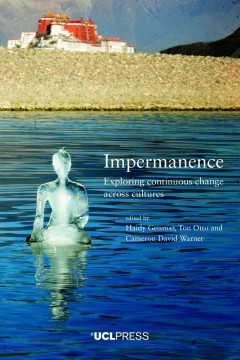
Impermanence :exploring continuous change across cultures
Nothing lasts forever. This common experience is the source of much anxiety but also hope. The concept of impermanence or continuous change opens up a range of timely questions and discussions that speak to globally shared experiences of transformation and concerns for the future. Impermanence engages with an emergent body of social theory emphasizing flux and transformation, and brings this in…
- Edition
- -
- ISBN/ISSN
- 9781787358690
- Collation
- xiii, 364p. ill;
- Series Title
- -
- Call Number
- 294.342 IMP H
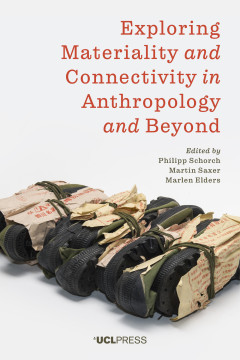
Exploring Materiality and connectivity in anthropology and beyond
Exploring Materiality and Connectivity in Anthropology and Beyond provides a new look at the old anthropological concern with materiality and connectivity. It understands materiality not as defined property of some-thing, nor does it take connectivity as merely a relation between discrete entities. Somewhat akin to Heisenberg’s uncertainty principle, it sees materiality and connectivity as tw…
- Edition
- -
- ISBN/ISSN
- 9781787357488
- Collation
- xvii, 259 p. ill;
- Series Title
- -
- Call Number
- 306 EXP P
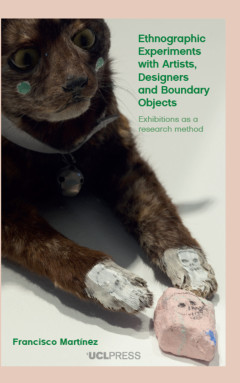
Ethnographic experiments with artists, designers and boundary objects :exhibi…
Ethnographic Experiments with Artists, Designers and Boundary Objects is a lively investigation into anthropological practice. Richly illustrated, it invites the reader to reflect on the skills of collaboration and experimentation in fieldwork and in gallery curation, thereby expanding our modes of knowledge production. At the heart of this study are the possibilities for transdisciplinary coll…
- Edition
- -
- ISBN/ISSN
- 9781800081086
- Collation
- xiii, 201 p. ill;
- Series Title
- -
- Call Number
- 708 ETH F
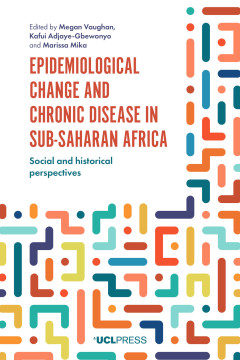
Epidemiological Change and Chronic Disease in Sub-Saharan Africa :Social and …
Epidemiological Change and Chronic Disease in Sub-Saharan Africa offers new and critical perspectives on the causes and consequences of recent epidemiological changes in sub-Saharan Africa, particularly on the increasing incidence of so-called ‘non-communicable’ and chronic conditions. Historians, social anthropologists, public health experts and social epidemiologists present important ins…
- Edition
- -
- ISBN/ISSN
- 9781787357044
- Collation
- xiii, 350p. ill;
- Series Title
- -
- Call Number
- 614.096 EPI M
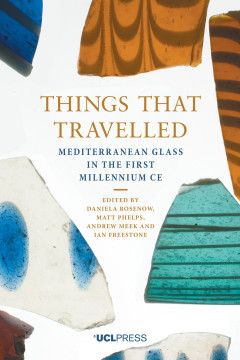
Things that travelled :Mediterranean glass in the first millennium CE
Recent research has demonstrated that, in the Roman, Late Antique, Early Islamic and Medieval worlds, glass was traded over long distances, from the Eastern Mediterranean, mainly Egypt and Israel, to Northern Africa, the Western Mediterranean and Northern Europe. Things that Travelled, a collaboration between the UCL Early Glass Technology Research Network, the Association for the History of Gl…
- Edition
- -
- ISBN/ISSN
- 9781787351172
- Collation
- xviii, 362 p. ill;
- Series Title
- -
- Call Number
- 748.20937 THI D
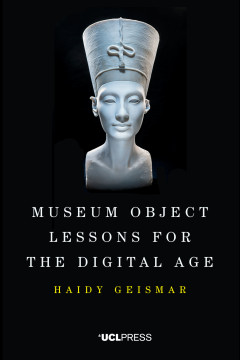
Museum object lessons for the digital age
Museum Object Lessons for the Digital Age explores the nature of digital objects in museums, asking us to question our assumptions about the material, social and political foundations of digital practices. Through four wide-ranging chapters, each focused on a single object – a box, pen, effigy and cloak – this short, accessible book explores the legacies of earlier museum practices of colle…
- Edition
- -
- ISBN/ISSN
- 9781787352810
- Collation
- xv, 139 p. ill;
- Series Title
- -
- Call Number
- 069.5 MUS H
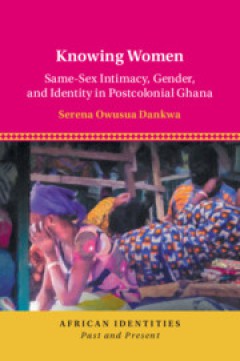
Knowing Women :Same-Sex Intimacy, Gender, and Identity in Postcolonial Ghana
Knowing Women is a study of same-sex desire in West Africa, which explores the lives and friendships of working-class women in southern Ghana who are intimately involved with each other. Based on in-depth research of the life histories of women in the region, Serena O. Dankwa highlights the vibrancy of everyday same-sex intimacies that have not been captured in a globally pervasive language of …
- Edition
- -
- ISBN/ISSN
- 9781108863575
- Collation
- ix, 332 p ; ill
- Series Title
- -
- Call Number
- 306.766309667 KNO S
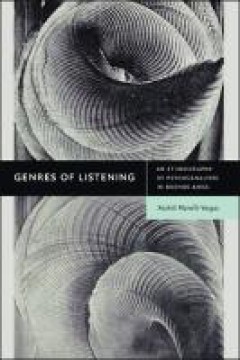
Genres of listening :an ethnography of psychoanalysis in Buenos Aires
Xochitl Marsilli-Vargas explains how psychoanalytic listening practices have expanded beyond the clinical setting to influence everyday social interactions in Buenos Aires.
- Edition
- -
- ISBN/ISSN
- 9781478092698
- Collation
- ix, 249p.
- Series Title
- -
- Call Number
- 153.733 GEN m
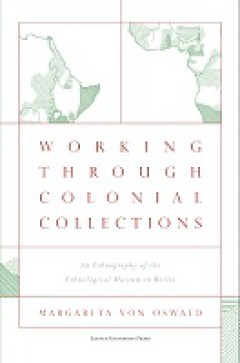
WORKING THROUGH COLONIAL COLLECTIONS :an ethnography of the ethnological muse…
Reckoning with colonial legacies in Western museum collections What are the possibilities and limits of engaging with colonialism in ethnological museums? This book addresses this question from within the Africa department of the Ethnological Museum in Berlin. It captures the Museum at a moment of substantial transformation, as it prepared the move of its exhibition to the Humboldt Forum, a new…
- Edition
- -
- ISBN/ISSN
- 9789462703100
- Collation
- 321p.; ill.
- Series Title
- -
- Call Number
- 301 WOR v
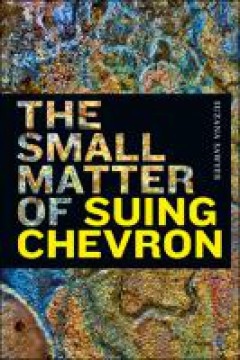
The small matter of suing Chevron
Suzana Sawyer traces Ecuador’s lawsuit against the Chevron corporation for the environmental devastation resulting from its oil drilling practices, showing how distinct legal truths were relationally composed of, with, and through crude oil.
- Edition
- -
- ISBN/ISSN
- 9781478092612
- Collation
- xiii, 417p.; ill.
- Series Title
- -
- Call Number
- 305.563309 SMA s
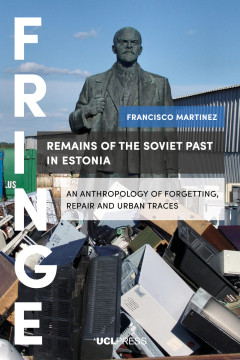
Remains of the Soviet past in Estonia :an anthropology of forgetting, repair …
What happens to legacies that do not find any continuation? In Estonia, a new generation that does not remember the socialist era and is open to global influences has grown up. As a result, the impact of the Soviet memory in people’s conventional values is losing its effective power, opening new opportunities for repair and revaluation of the past. Francisco Martinez brings together a numb…
- Edition
- -
- ISBN/ISSN
- 9781787353534
- Collation
- xix, 255 p. ill;
- Series Title
- -
- Call Number
- 974.98 REM F
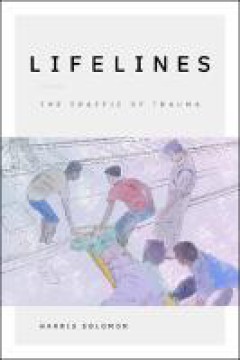
Lifelines :the traffic of trauma
Harris Solomon takes readers into the trauma ward of one of Mumbai’s busiest public hospitals, narrating the stories of the patients, providers, families, and frontline workers who experience and treat traumatic injury from traffic .
- Edition
- -
- ISBN/ISSN
- 9781478092728
- Collation
- xi, 305p.; ill.
- Series Title
- -
- Call Number
- 363.125650954792 LIF s
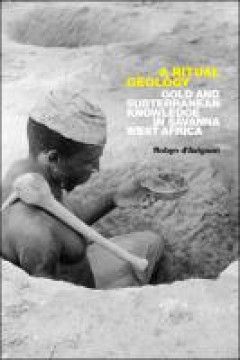
A ritual geology :gold and subterranean knowledge in Savannah West Africa
Robyn d’Avignon tells the history of West Africa’s centuries-old indigenous gold mining industries and its shared practices, prohibitions, and cosmological engagements.
- Edition
- -
- ISBN/ISSN
- 9781478092674
- Collation
- xvii, 329p.; ill.
- Series Title
- -
- Call Number
- 338.2741096 RIT d
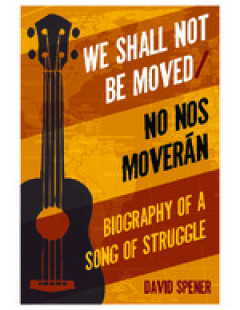
We Shall Not Be Moved: The Trail Blazed by a Song from the U.S. South to Spain and South America details the history of "We Shall Not Be Moved" from its birth as a slave spiritual in the U.S. South and its subsequent adoption as a standard hymn by the U.S. labor, civil rights, and farmworker movements, to its singing in the student movement opposing the Franco dictatorship in Spain in the 1960s…
- Edition
- -
- ISBN/ISSN
- 9781439912997
- Collation
- Knowledge Unlatched (KU)
- Series Title
- -
- Call Number
- -
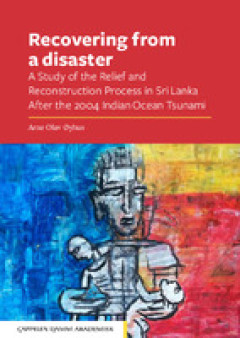
Recovering From a Disaster; A study of The Relief And Reconstruction Process …
On 26 December 2004 at 6.58 hours (Sri Lanka Time), a massive earthquake with its epicentre outside the coast of Sumatra generated a series of gigantic waves, tsunamis. At 8.35 hours the waves reached the eastern and southern coastline of Sri Lanka, crushing hundreds of villages and towns, killing and maiming tens of thousands of people within seconds. When the waves pulled back, and the ocean …
- Edition
- -
- ISBN/ISSN
- -
- Collation
- -
- Series Title
- -
- Call Number
- -
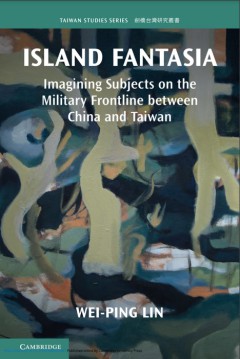
Island fantasia :imagining subjects on the military frontline between China a…
The Matsu archipelago between China and Taiwan, for long an isolated outpost off southeast China, was suddenly transformed into a military frontline in 1949 by the Cold War and the Communist-Nationalist conflict. The army occupied the islands, commencing more than 40 long years of military rule. With the lifting of martial law in 1992, the people were confronted with the question of how to move…
- Edition
- -
- ISBN/ISSN
- 9781009023481
- Collation
- xviii; 310p; ill.
- Series Title
- -
- Call Number
- 951.249 ISL W
 Computer Science, Information & General Works
Computer Science, Information & General Works  Philosophy & Psychology
Philosophy & Psychology  Religion
Religion  Social Sciences
Social Sciences  Language
Language  Pure Science
Pure Science  Applied Sciences
Applied Sciences  Art & Recreation
Art & Recreation  Literature
Literature  History & Geography
History & Geography